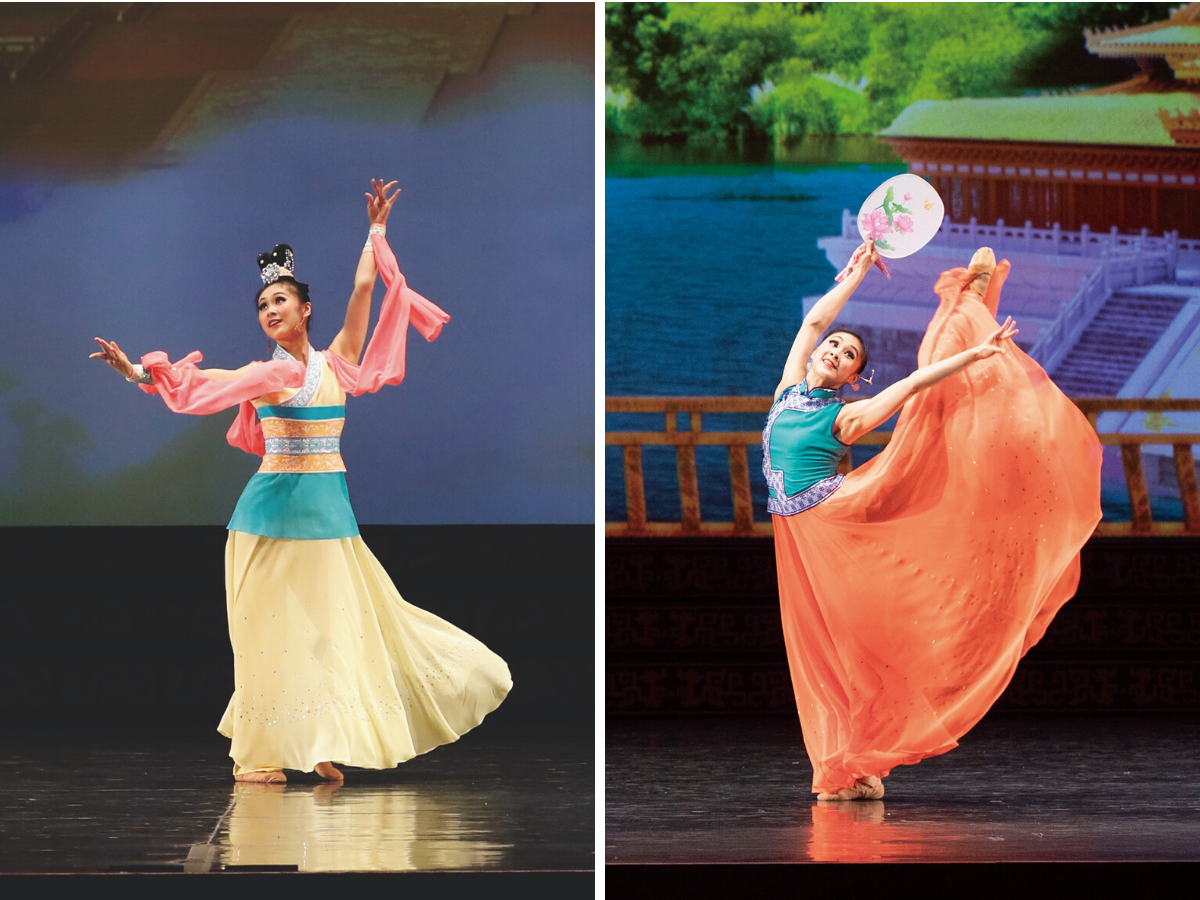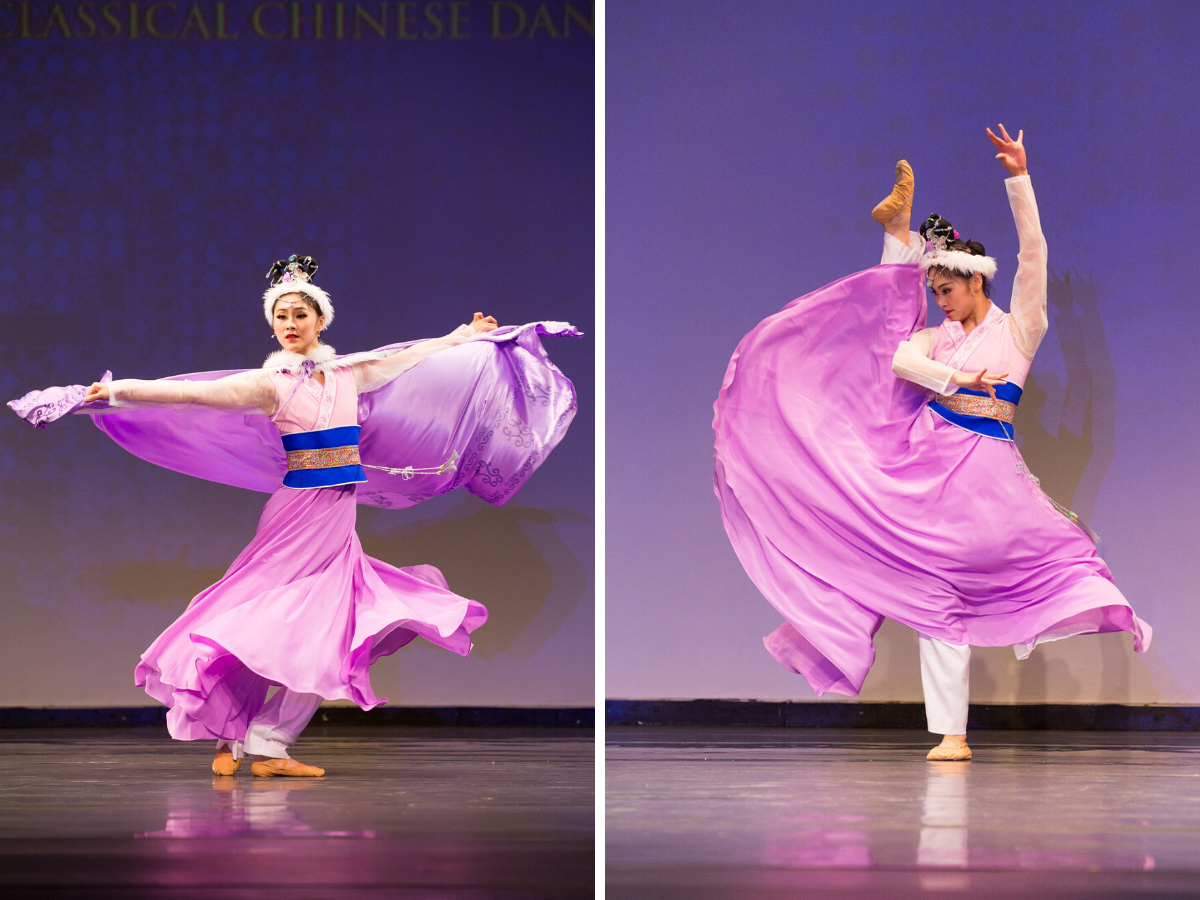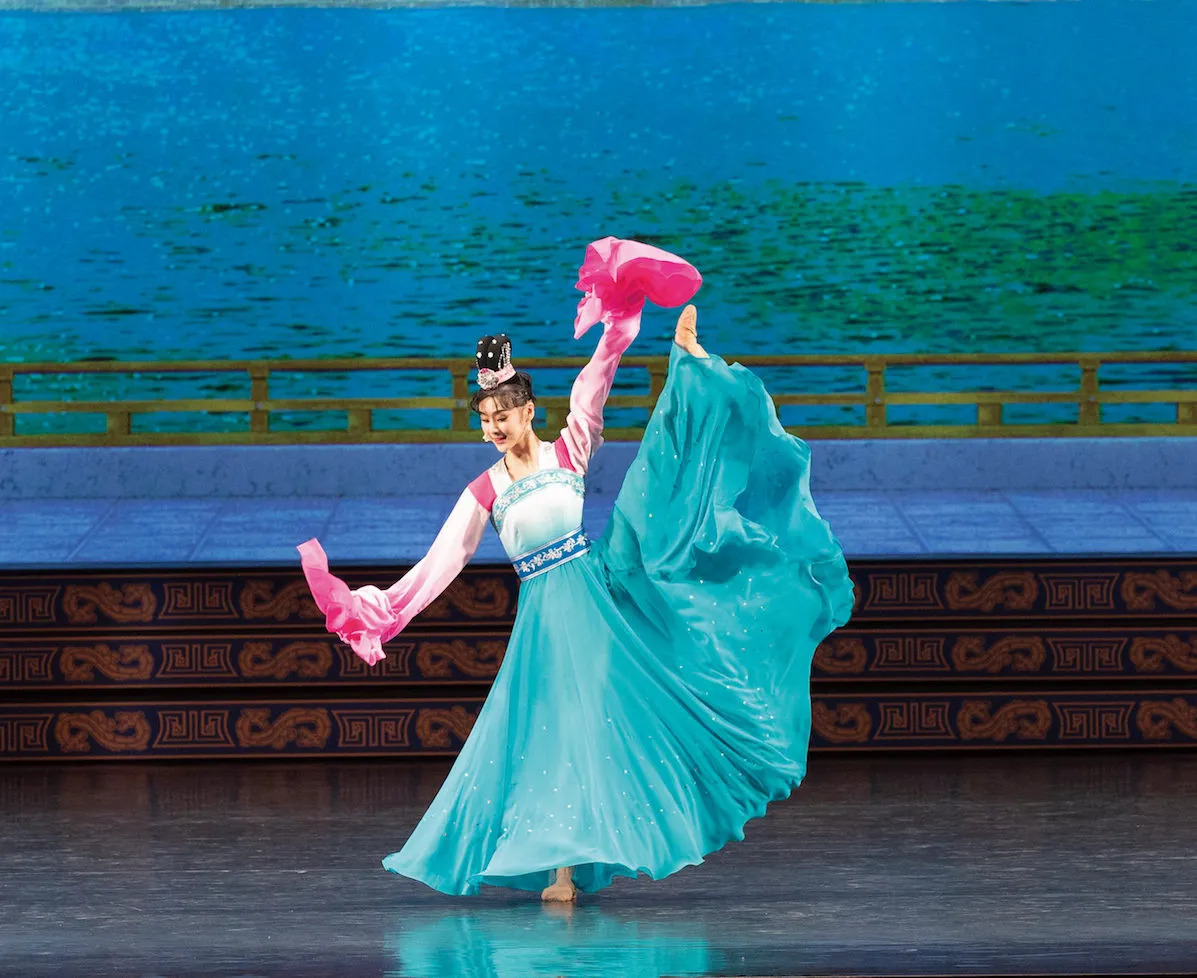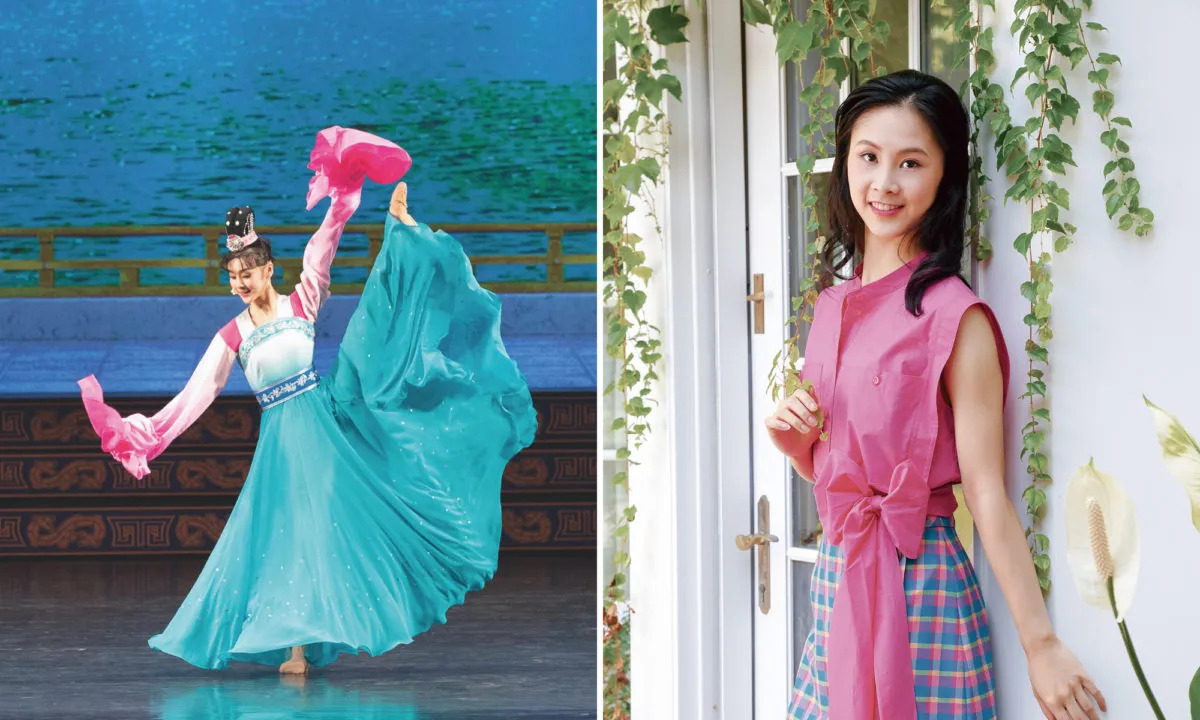Magnifissance is France and Canada's leading bilingual luxury lifestyle magazine in Chinese and English, dedicated to bridging East and West through a shared appreciation for the beauty and elegance rooted in both traditions.
From Magnifissance’s: "Angela Xiao: Dancing With Grace and a Selfless Heart"
The late nights, six-day intensive weeks, and six-month-long tours don’t feel like an overwhelming schedule to dancer Angela Xiao. What for many of us would be a great personal sacrifice, for her is a life well-lived.
“I don’t like wasting time,” said Xiao, who has been dancing for ten years with the world’s premier classical Chinese dance company, Shen Yun Performing Arts. Exuding a fascinating mix of bubbliness and sincerity, she said that she feels lucky to be doing something purposeful; in fact, sometimes on vacation, she doesn’t know what to do with her time.
Xiao loves the excitement of touring—trying new foods and learning new things—but after nearly a decade of traveling all over the world, she doesn’t rely on novelty to keep her going. Rather, a big part of what keeps her on point is consciously working on her outlook to overcome those subtle negative thoughts that otherwise build up and make long-term commitments difficult.
“I’ve had to learn to be more selfless,” she said. “When you put yourself first, it actually just causes a bunch of troubles.” Due to the nature of her art, this selflessness is also a key to improving her dance skills.

Facing Her Self
In ancient Chinese culture, there was awareness that spiritual principles were behind the workings of natural phenomenon, as well as guiding the events of a person’s life. It was held that to produce great art, artists must align themselves with spiritual principles. People of high caliber would have brightly shining spirits and transmit some of this light to others through their art. The art of someone with a negative outlook would be dark and spread unhappiness.
For Xiao, there is very practical and tangible application of this in her art. She explained to Elite Lifestyle Magazine how, beneath the gorgeous costumes and perfectly timed moves, confident selflessness gives her dance life.
“You can’t escape yourself,” she said. “In classical Chinese dance, you show your inner self because when dancing—you can’t hide anything. People can see your personality,” she explained.
“Sometimes my moves are too small, and I feel like that’s connected with my personality … [So] I try to be more open,” she said.
Expressing Feelings through Dancing
A dancer’s emotion is also directly addressed in classical Chinese dance training, through a skill called bearing. “Bearing emphasizes internal spirit, breath, intent, personal aura, and deep emotional expression,” the Shen Yun website explains.
Bearing is one of the more advanced skills. For Xiao, it comes more naturally to her in court dances, which are her favorites.
She has also played a number of different character roles. Each role presents a unique challenge because she needs to understand the character’s emotions.
She recalls one of the first roles she played—a goddess of mercy. After being cast, she felt that it was a good opportunity to cultivate greater mercy and compassion in herself.
Other roles have required her to portray more human emotions, including ones that she would normally not experience; for example, those of a mother on her deathbed. For her to understand these feelings and give them form through her movements, it takes great empathy and letting go of her self.

Cultural Inspiration
The sparkle and grandeur of ancient Chinese court life has intrigued Xiao since she was young. Now, after a decade of performing classical Chinese dance, she’s come about as close to it as possible in the modern era.
Xiao grew up in Canada, having moved there when she was only four years old. However, she was lucky enough to have her grandparents living with her; they kept her connected to her roots by telling her many Chinese children’s stories.
In her teens, she read the four Chinese classic novels; her favorite is Romance of the Three Kingdoms. And she has an affinity for the poem “The Sea” written by the Han Dynasty warlord Cao Cao. In it, he describes his great delight in gazing at the ocean.“It makes me feel very refreshed after reading it,” Xiao shared with Elite.
In addition to performing with Shen Yun, Xiao has studied at Fei Tian Academy of the Arts, a private school in upstate New York, where she was further immersed in traditional Chinese culture through in-depth, bilingual courses in history and Chinese language.

Two of her current favorite historical characters are Emperor Taizong and his wife, Empress Zhangsun. Following his father’s death, Taizong became the second emperor of China’s Tang Dynasty—the dynasty that is considered China’s golden age. His wife then became empress and was known for her tolerance, wisdom, and personal sacrifices for the country.
For example, when she fell ill, it was suggested that the emperor donate more money to temples so that the divine might be inclined to bless her and restore her health. But Empress Zhangsun objected to this, saying that her death would be determined her by fate and that the country’s resources should not be wasted on trying to change her destiny.
Empress Zhangsun passed away at age 36, but before she left, she made two requests of her husband: that under no circumstance should he promote her family members who didn’t hold merit (some were profiting off their relationship to the empress) and that again, the country should not waste resources on building her a fancy tomb.
Xiao said that she admires the empress’s intelligence and selflessness.
“I like how she intelligently supported the country behind the scenes. She didn’t show off what she accomplished, but she contributed a lot to make the country better,” Xiao wrote in a follow up interview email.
Ingredients for Good Collaboration
Reflecting on the life lessons that being a part of such a close-knit group has taught her, Xiao said that it’s important to care for others and have a realistic perception of your own abilities. If you care too much about what others think of you, it makes things harder.
When helping someone correct a mistake, it is important to always be kind. However, if it’s her own mistake, she says that it’s best to face it head-on and fix it, not letting fear get in the way. “The fear of making mistakes is a barrier. …You learn more if you’re not afraid to be wrong.”
She also constantly strives to be humble, and to keep an open mind. “It’s always good to be humble,” she said. “You know more when you admit you don’t know something.”


